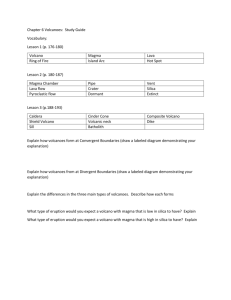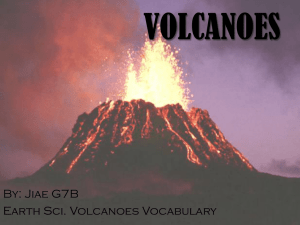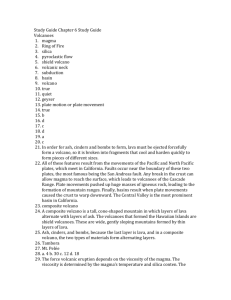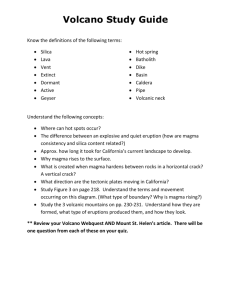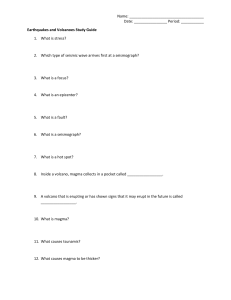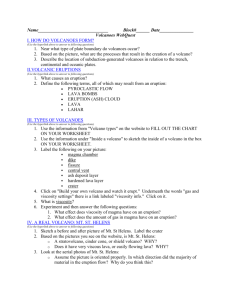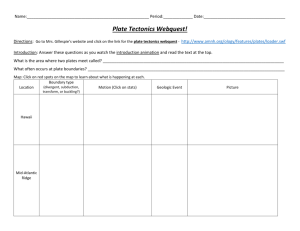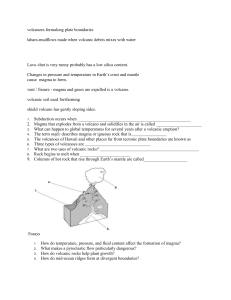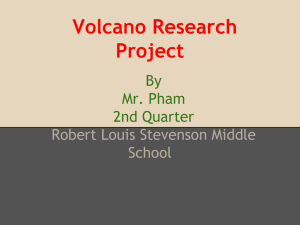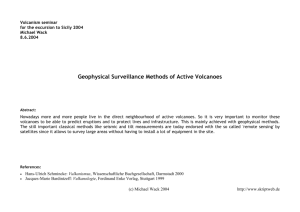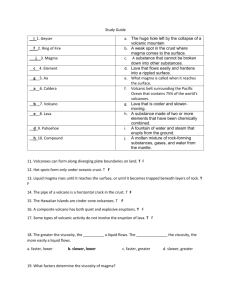File
advertisement
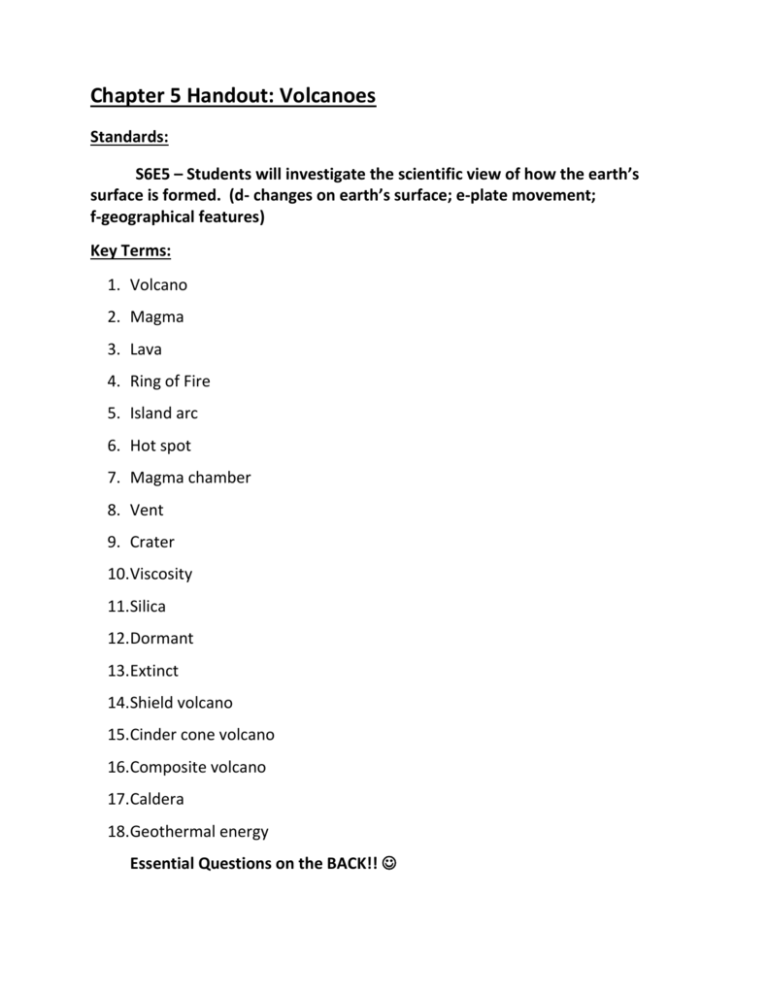
Chapter 5 Handout: Volcanoes Standards: S6E5 – Students will investigate the scientific view of how the earth’s surface is formed. (d- changes on earth’s surface; e-plate movement; f-geographical features) Key Terms: 1. Volcano 2. Magma 3. Lava 4. Ring of Fire 5. Island arc 6. Hot spot 7. Magma chamber 8. Vent 9. Crater 10.Viscosity 11.Silica 12.Dormant 13.Extinct 14.Shield volcano 15.Cinder cone volcano 16.Composite volcano 17.Caldera 18.Geothermal energy Essential Questions on the BACK!! Essential Questions: 1. Where do volcanic belts form? 2. What type of plate boundary is associated with island arcs? 3. What are 3 of the major island arcs? 4. What is responsible for the formation of the Hawaiian islands? 5. When a volcano _____________, the force of the _______________ ________ pushes magma from the ______________ _________________ through the pipe until it flows or explodes out of the ________________. 6. The viscosity of magma depends on its ______________ content and ____________________. 7. If the volcano’s magma is low in silica, what type of eruption will it have? 8. If the volcano’s magma is high in silica, what type of eruption will it have? 9. An explosive eruption breaks lava into fragments of different sizes. List the 3 types of fragments in order of size from smallest to largest. (pg 155) 10.What is the main hazard of a quiet eruption? An explosive eruption? 11.What are the 3 terms used to describe a volcano’s stage of activity? 12.How do geologists monitor volcanoes? 13.What triggers the small earthquakes associated with some volcanic eruptions? 14.What are the three types of volcanoes? 15.Groundwater heated by magma is a source of what type energy? 16. Understand Figure 3, Pg 148 and how volcanoes form at each type of plate boundary.
